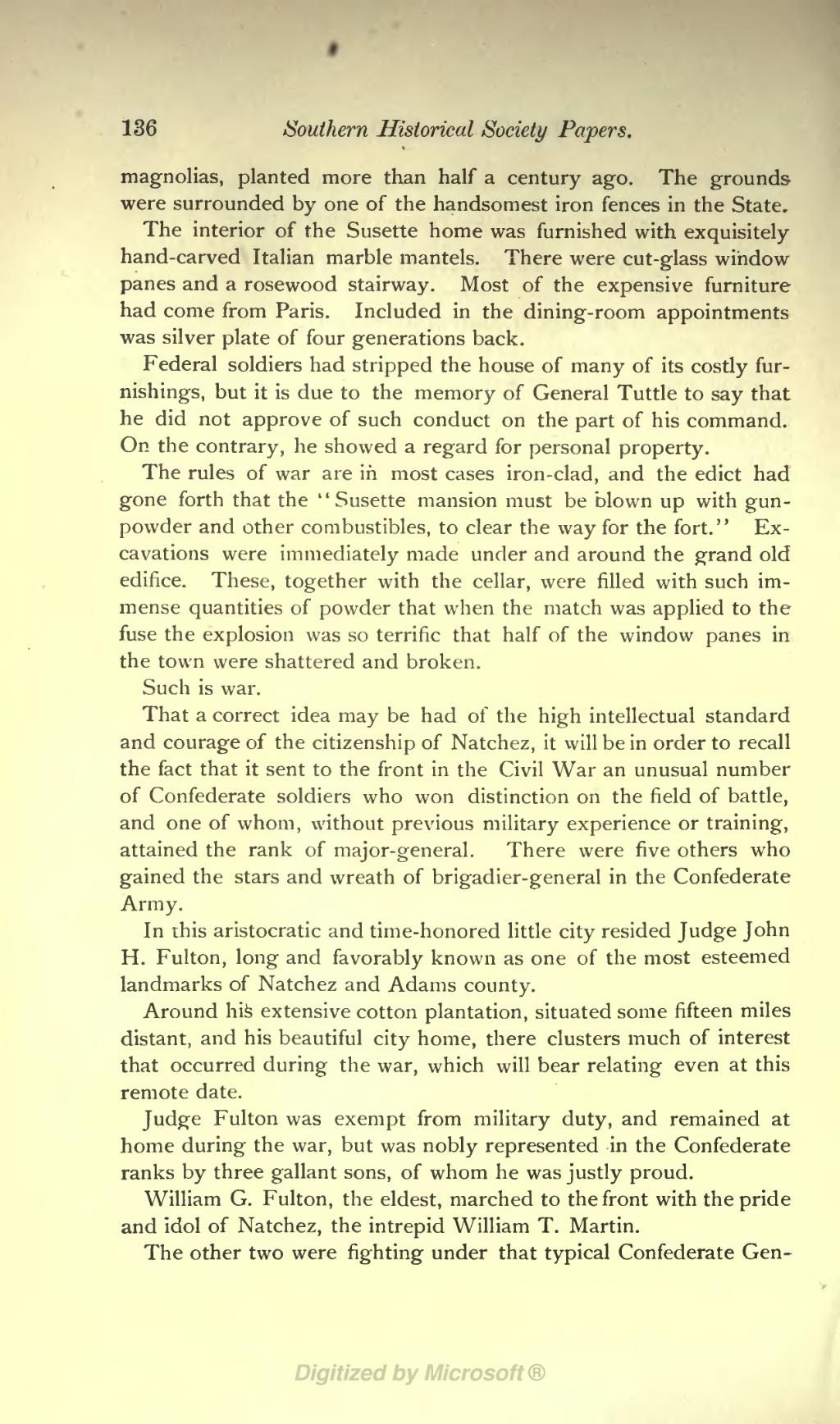136 Southern Historical Society Papers.
magnolias, planted more than half a century ago. The grounds were surrounded by one of the handsomest iron fences in the State,
The interior of the Susette home was furnished with exquisitely hand-carved Italian marble mantels. There were cut-glass window panes and a rosewood stairway. Most of the expensive furniture had come from Paris. Included in the dining-room appointments was silver plate of four generations back.
Federal soldiers had stripped the house of many of its costly fur- nishings, but it is due to the memory of General Tuttle to say that he did not approve of such conduct on the part of his command. On the contrary, he showed a regard for personal property.
The rules of war are in most cases iron-clad, and the edict had gone forth that the "Susette mansion must be blown up with gun- powder and other combustibles, to clear the way for the fort." Ex- cavations were immediately made under and around the grand old edifice. These, together with the cellar, were filled with such im- mense quantities of powder that when the match was applied to the fuse the explosion was so terrific that half of the window panes in the town were shattered and broken.
Such is war.
That a correct idea may be had of the high intellectual standard and courage of the citizenship of Natchez, it will be in order to recall the fact that it sent to the front in the Civil War an unusual number of Confederate soldiers who won distinction on the field of battle, and one of whom, without previous military experience or training, attained the rank of major-general. There were five others who gained the stars and wreath of brigadier-general in the Confederate Army.
In this aristocratic and time-honored little city resided Judge John H. Fulton, long and favorably known as one of the most esteemed landmarks of Natchez and Adams county.
Around his extensive cotton plantation, situated some fifteen miles distant, and his beautiful city home, there clusters much of interest that occurred during the war, which will bear relating even at this remote date.
Judge Fulton was exempt from military duty, and remained at home during the war, but was nobly represented in the Confederate ranks by three gallant sons, of whom he was justly proud.
William G. Fulton, the eldest, marched to the front with the pride and idol of Natchez, the intrepid William T. Martin.
The other two were fighting under that typical Confederate Gen-
